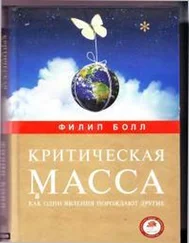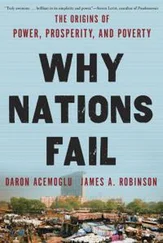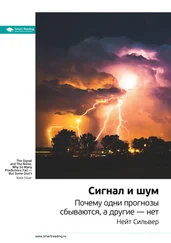Haber, Stephen H. (2010). “Politics, Banking, and Economic Development: Evidence from New World Economies.” In Jared Diamond and James A. Robinson, eds. Natural Experiments of History. Cambridge, Mass.: Belknap Press of Harvard University Press.
Haber, Stephen H., Herbert S. Klein, Noel Maurer, and Kevin J. Middlebrook (2008). Mexico Since 1980 . New York: Cambridge University Press.
Haber, Stephen H., Noel Maurer, and Armando Razo (2003). The Politics of Property Rights: Political Instability, Credible Commitments, and Economic Growth in Mexico, 1876–1929. New York: Cambridge University Press.
Haggard, Stephan (1990). Pathways from the Periphery: The Politics of Growth in the Newly Industrializing Countries. Ithaca, N. Y.: Cornell University Press.
Halliday, Fred, and Maxine Molyneux (1981). The Ethiopian Revolution. London: Verso.
Hanna, Willard (1978). Indonesian Banda: Colonialism and Its Aftermath in the Nutmeg Islands. Philadelphia: Institute for the Study of Human Issues.
Harding, Harry (1987). China’s Second Revolution: Reform After Mao. Washington, D. C.: Brookings Institution Press.
Harrison, Lawrence E., and Samuel P. Huntington, eds. (2000). Culture Matters: How Values Shape Human Progress. New York: Basic Books.
Hassig, Ralph C., and Kongdan Oh (2009). The Hidden People of North Korea: Everyday Life in the Hermit Kingdom. Lanham, Md.: Rowman and Littlefield Publishers.
Hatcher, John (2008). The Black Death: A Personal History. Philadelphia: Da Capo Press.
Heath, Dwight (1972). “New Patrons for Old: Changing Patron-Client Relations in the Bolivian Yungas.” In Arnold Strickton and Sidney Greenfield, eds. Structure and Process in Latin America. Albuquerque: University of New Mexico Press.
Heinicke, Craig (1994). “African-American Migration and Mechanized Cotton Harvesting, 1950–1960.” Explorations in Economic History 31: 501–20.
Helmke, Gretchen (2004). Courts Under Constraints: Judges, Generals, and Presidents in Argentina. New York: Cambridge University Press.
Hemming, John (1983). The Conquest of the Incas. New York: Penguin Books.
Herbst, Jeffrey I. (2000). States and Power in Africa. Princeton, N. J.: Princeton University Press.
Hill, Christopher (1961). The Century of Revolution, 1603–1714. New York: W. W. Norton and Co.
— (1980). “A Bourgeois Revolution?” In Lawrence Stone, ed. The British Revolutions: 1641, 1688, 1776. Princeton, N. J.: Princeton University Press.
Hilton, Anne (1985). The Kingdom of Kongo. New York: Oxford University Press.
Hilton, Rodney (2003). Bond Men Made Free: Medieval Peasant Movements and the English Rising of 1381. 2nd ed. New York: Routledge.
Hirst, John B. (1983). Convict Society and Its Enemies: A History of Early New South Wales. Boston: Allen and Unwin.
— ( 1988). The Strange Birth of Colonial Democracy: New South Wales, 1848–1884. Boston: Allen and Unwin.
— (2003). Australia’s Democracy: A Short History. London: Allen and Unwin.
Hopkins, Anthony G. (1973). An Economic History of West Africa. New York: Addison Wesley Longman.
Hopkins, Keith (1980). “Taxes and Trade in the Roman Empire, 200 bc–400 ad.” Journal of Roman Studies LXX: 101–25.
Horrox, Rosemary, ed. (1994). The Black Death. New York: St. Martin’s Press.
House of Commons (1904). “Papers Relating to the Construction of Railways in Sierra Leone, Lagos and the Gold Coast.”
Hu-DeHart, Evelyn (1984). Yaqui Resistance and Survival: The Struggle for Land and Autonomy, 1821–1910. Madison: University of Wisconsin Press.
Iaryczower, Matias, Pablo Spiller, and Mariano Tommasi (2002). “Judicial Independence in Unstable Environments: Argentina 1935–1998.” American Journal of Political Science 46: 699–716.
Inikori, Joseph (1977). “The Import of Firearms into West Africa, 1751–1807.” Journal of African History 18: 339–68.
International Crisis Group (2005). “Uzbekistan: The Andijon Uprising,” Asia Briefing No. 38, www.crisisgroup.org/en/regions/asia/central — asia/uzbekistan/ B038–uzbekistan — the — andijon — uprising.aspx.
Israel, Paul (2000). Edison: A Life of Invention. Hoboken, N. J.: John Wiley and Sons.
Iwata, Masakazu (1964). Okubo Toshimichi: The Bismarck of Japan. Berkeley: University of California Press.
Jackson, Michael (2004). In Sierra Leone. Durham, N. C.: Duke University Press.
Jansen, Marius B. (2000). The Making of Modern Japan. Cambridge, Mass.: Harvard University Press.
Jaszi, Oscar (1929). The Dissolution of the Habsburg Monarchy. Chicago: University of Chicago Press.
Johnson, Chalmers A. (1982). MITI and the Japanese Miracle: The Growth of Industrial Policy, 1925–1975. Palo Alto, Calif.: Stanford University Press.
Jones, A. M. H. (1964). The Later Roman Empire . Volume 2. Oxford, U. K.: Basil Blackwell.
Jones, Eric L. (2003). The European Miracle: Environments, Economies and Geopolitics in the History of Europe and Asia. 3rd ed. New York: Cambridge University Press.
Jongman, Willem M. (2007). “Gibbon Was Right: The Decline and Fall of the Roman Economy.” In O. Hekster et al., eds. Crises and the Roman Empire. Leiden, the Netherlands: BRILL.
Josephson, Matthew (1934). The Robber Barons. Orlando, Fla.: Harcourt.
Kandiyoti, Deniz (2008). “Invisible to the World? The Dynamics of Forced Child Labour in the Cotton Sector of Uzbekistan.” Unpublished. School of Oriental and Africa Studies.
Kapuscinski, Ryszard (1983). The Emperor: Downfall of an Autocrat. San Diego: Harcourt Brace Jovanovich.
Keck, Margaret E. (1992). The Workers’ Party and Democratization in Brazil. New Haven, Conn.: Yale University Press.
Keen, David (2005). Conflict and Collusion in Sierra Leone. New York: Palgrave Macmillan.
Kelley, Jonathan, and Herbert S. Klein (1980). Revolution and the Rebirth of Inequality: A Theory of Inequality and Inherited Privilege Applied to the Bolivian National Revolution. Berkeley: University of California Press.
Keyssar, Alexander (2009). The Right to Vote: The Contested History of Democracy in the United States. Revised Edition. New York: Basic Books.
Killick, Tony (1978). Development Economics in Action. London: Heinemann.
Knight, Alan (2011). Mexico: The Nineteenth and Twentieth Centuries. New York: Cambridge University Press.
Knights, Mark (2010). “Participation and Representation Before Democracy: Petitions and Addresses in Premodern Britain.” In Ian Shapiro, Susan C. Stokes, Elisabeth Jean Wood, and Alexander S. Kirshner, eds . Political Representation. New York: Cambridge University Press.
Kropotkin, Peter (2009). Memoirs of a Revolutionary. New York: Cosimo.
Kupperman, Karen O. (2007). The Jamestown Project. Cambridge, Mass.: Belknap Press of Harvard University Press.
Landes, David S. (1999). The Wealth and Poverty of Nations: Why Some Are So Rich and Some So Poor. New York: W. W. Norton and Co.
Lane, Frederick C. (1973). Venice: A Maritime Republic. Baltimore, Md.: Johns Hopkins University Press.
La Porta, Rafael, Florencio Lopez-de-Silanes, and Andrei Shleifer (2008). “The Economic Consequences of Legal Origins.” Journal of Economic Literature 46: 285–332.
Law, Robin C. (1977). The Oyo Empire, c.1600–c.1836: West African Imperialism in the Era of the Atlantic Slave Trade. Oxford, UK: The Clarendon Press.
Читать дальше
Конец ознакомительного отрывка
Купить книгу












